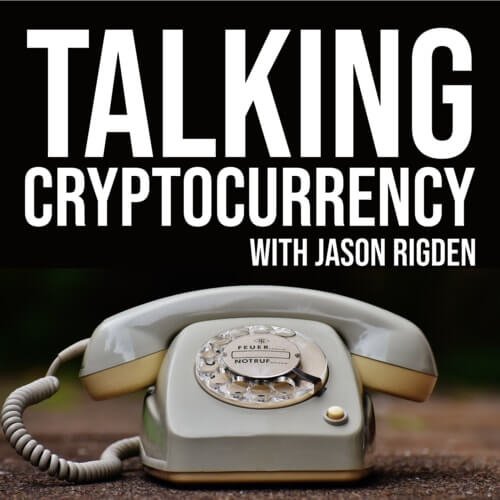The Talking Cryptocurrency Manifesto
These are my intentions, motives, and views about the Talking Cryptocurrency podcast. It explains why I do the show and how I do it.
The Problem
People want to keep up with the blockchain industry. They want to know about the different projects and companies in the space. So, they listen to podcasts that interview representatives from those projects. This should give them a glimpse into the industry and introduce them to new projects.
The problem is that most cryptocurrency podcasts are long, boring, and uninformative.
Most of these cryptocurrency podcast are way too long. People just don’t have the time to listen to another hour and a half long podcast. The average commute time for US workers is about 26 minutes. That commuter would have to listen to the show for three commutes to hear the full show. That is not what happens. When a show is too long, people just stop listening. They move on to the next show. According to the 2017 Infinite Dial Report only 42% of the audience listens to the complete episode.
Guests spend too much time talking about themselves. Nobody cares about where you went to school or where you used to work. Listeners don’t care who you know. They want to know about the project.
Even when they do talk about the company often it is totally focused on the ICO. There is just a jumble of numbers, dates, and jargon. I don’t care about your pre-sale discounts or bounties. I want to know about the project.
Many cryptocurrency podcasts are receiving tokens or money from their guests. This has caused a proliferation of low quality cryptocurrency podcasts. Lots of shows churning out episodes without any regard for the listener. Some are even paying for podcast reviews, YouTube subscribers, and Twitter followers to make them look more legitimate.
The Solution
I am producing my own podcast. It’s called Talking Cryptocurrency. I interview a representative of a different cryptocurrency project every episode.
The episodes are no longer than 30 minutes. Just enough time to cover a commute or a short walk.
I don’t request or accept any payments for interviewing my guests. I don’t participate in any marketing bounty programs. If I want to make money in podcasting, I’ll do it the old fashioned way. I’ll beg people to join my patreon or sell those internet mattresses.
I don’t ask the guests about themselves. The listeners want to hear about the project. I just ask a standard series of questions with reasonable follow up questions.
- Can you tell me about the problem that you are solving?
- How are you solving that problem?
- What are some of the challenges of solving that problem?
- What are the future goals of the project?
These questions follow a standard pattern that you’ll see all over. It’s a very effective way to keep an audience’s attention and get them engaged. The first two questions are the foundation for almost every late night “As Seen on TV” commercial. It is also the standard way people pitch on Shark Tank and Dragons Den. Identify a problem and offer a solution. The third question is an opportunity for the representative to tell a story or explain the achievements of the project. The last question is chance to talk about the promise of the future.
This series of questions gives the audience a nice overview of the project. They will end up knowing what the project does, how they do it, why they do it, and where the project is going.
The Challenges
The biggest challenge of producing this podcast has been getting guests. I don’t have any connections in the industry. Nobody knows who I am. I can’t leverage my personal network to get interviews. At first I didn’t even have any episodes.
So, I sent out hundreds of emails. Cold emailing projects and requesting an interview. I send out about 20 emails requesting interviews almost everyday. I’ll maybe get one or two responses. Then often comes the email ping pong negotiating the interview. This process is getting better. Having a couple of episodes as an example helps.
The Future
In the future, I’d like to have the opportunity to do the show remotely. I’d like to go to conferences around the world and do interviews face to face. Maybe even host a panel discussion at a conference.
Anything Else?
I also always ask the guests, if I missed anything. “Is there anything I should have asked you that I missed?” I think I stole this from Tim Ferriss.
Also you may have noticed, that this whole piece has followed my question pattern

Talking Cryptocurrency
This podcast is series of interviews with the people making the cryptocurrency and blockchain revolution happen. Be guest on the show by visiting the guests page.
Subscribe or use Apple Podcasts
Check out some of my recent interviews:
Dan de Sa of CoinMirror
Rahul Patil of Delicia.io